|
|
|
|
|
|
|
|

Today's Congressional Action:
The House is not in session. The Senate is expected to hold a pro forma session.
|
The Donut Hole at the Center of the Arctic Ocean. June 5 was National Donut Day. So that makes it a better time than ever to talk about the so-called donut hole in the Arctic Ocean. The donut hole consists of some 1.1 million square miles of typically ice-covered water. The area's name derives from its shape, which looks like an oddly squished donut hole according to current exclusive economic zone boundaries, which are based on the 200 nautical mile limit. Alaska Dispatch News
 Study: Climate Change is a Chief Threat to Polar Bears. A new federal study shows Alaska's two polar bear populations could be greatly decreased in a decade. The research also shows global warming is by far the biggest threat to polar bear populations across the arctic compared to other stressors like hunting and pollutants. The information is critical to wildlife managers as they develop and implement a recovery plan for the species that's expected to be released this week (July 2nd). The polar bear was listed as threatened under the Endangered Species Act in 2008. Alaska Public Radio Study: Climate Change is a Chief Threat to Polar Bears. A new federal study shows Alaska's two polar bear populations could be greatly decreased in a decade. The research also shows global warming is by far the biggest threat to polar bear populations across the arctic compared to other stressors like hunting and pollutants. The information is critical to wildlife managers as they develop and implement a recovery plan for the species that's expected to be released this week (July 2nd). The polar bear was listed as threatened under the Endangered Species Act in 2008. Alaska Public Radio
Shell Gets Federal Approval to Head North, With Some Stipulations. The U.S. Fish and Wildlife Service issued a Letter of Authorization to Shell on Tuesday. The authorization allows the oil company to "take small numbers of Polar bears and Pacific walrus incidental to activities occurring during its 'Outer Continental Shelf 2015' exploration drilling program in the Chukchi Sea" this summer. Alaska Public Radio
Study: Kings are Smaller Than They Used to Be. After fishermen pointed out what they thought was a change in the size of king salmon returning to the Copper River, researchers from Fish and Game looked at data from 10 Alaska rivers. Fish and Game Regional Fisheries Management Coordinator Bert Lewis says they found that king salmon today are smaller than they were 30 years ago, which is as far back the size data they used went. Alaska Public Radio
 BSEE and Coast Guard Discuss Arctic Preparedness Strategy. Bureau of Safety and Environmental Enforcement (BSEE) Alaska Region Director Mark Fesmire and Rear Admiral Dan Abel, Coast Guard 17th District Commander, met recently to discuss Arctic oil spill preparedness and coordination of incident management strategies. The meeting, which included BSEE and Coast Guard officials from Washington DC was in preparation for drilling operations proposed by Shell in the Chukchi Sea this summer. Offshore Shipping Online BSEE and Coast Guard Discuss Arctic Preparedness Strategy. Bureau of Safety and Environmental Enforcement (BSEE) Alaska Region Director Mark Fesmire and Rear Admiral Dan Abel, Coast Guard 17th District Commander, met recently to discuss Arctic oil spill preparedness and coordination of incident management strategies. The meeting, which included BSEE and Coast Guard officials from Washington DC was in preparation for drilling operations proposed by Shell in the Chukchi Sea this summer. Offshore Shipping Online
Russia May File Claim to UN for Arctic Shelf Expansion During Summer. Russian Deputy Minister of Natural Resources and Environment Denis Khramov said that Russia plans to submit an application to the United Nations this summer on expanding its Arctic shelf border. Sputnik
New Arctic Research Projects Start. The Oban-based Sams will be a partner in Norwegian-led studies investigating changes in Arctic ecosystems. Arctic ABC will investigate how the Arctic is responding to the loss of sea ice, whilst FAABulous will focus on changes in Arctic algae. Sams has previously been involved in pioneering research involving the little-studied polar night. BBC News
|
|
Legislative Action
No Arctic legislation was formally considered yesterday.
|
|
Future Events
Begins in 13 days...and registration is almost at capacity...
6th Symposium on the Impacts of an Ice-Diminishing Arctic on Naval and Maritime Operations, July 14-16, 2015 (Washington, DC, USA). This biennial symposium, co-hosted by the US National Ice Center and the US Arctic Research Commission, brings together nationally and internationally recognized experts on Arctic observations, climate change, and maritime operations. Past symposia expanded the discussion to include the impact of an ice-diminishing arctic on other nations and their maritime operations including commercial transportation, oil and gas exploration and exploitation, fisheries, and oceanographic research. The continuing reduction in Arctic sea ice extent remains a central focus.
Confirmed marquee speakers include Congressional leaders (Rep. Don Young, Senator Lisa Murkowski), the USCG Commandant (ADM Zukunft), State Dept. Arctic Rep. (ADM Robert Papp USCG (Ret.)), US Navy's Chief of Naval Research (RADM Winter), and NOAA's Chief Scientist (Dr. Rick Spinrad).
Other speakers will represent the State of Alaska, academic research, institutions private sector (oil and gas, maritime insurance), and other federal entities.
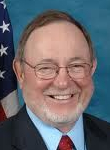  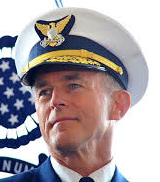
 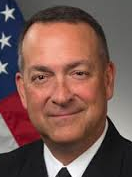 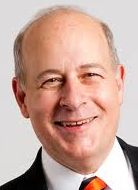
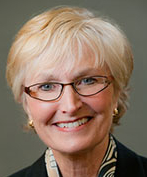 104th Meeting of the USARC, August 25-26, 2015 (Nome, AK, USA). USARC (Fran Ulmer, Chair) will hold its next meeting in Nome, where Ulmer will present the 2015-2017 Goals Report. The Commission will tour the new, light icebreaker vessel R/V Sikuliaq in the Nome port, and will hear from local researchers on topics such as health, social science, marine science, marine mammal co-management research, federal research, renewable energy, climate shipping, port development, and water and sanitation, among other topics. A full agenda will be forthcoming.
Eighth Polar Law Symposium Alaska 2015, September 23-26, 2015 (Fairbanks and Anchorage, Alaska , USA). The Eighth Polar Law Symposium is co-hosted by Alaska Pacific University (APU), the University of Alaska Fairbanks, the University of Alaska Anchorage (through its Justice Center and its Institute of Social and Economic Research), the University of Washington School of Law, and Vermont Law School, in cooperation with the Arctic Law Section of the Alaska Bar Association. The symposium will be held on both campuses of the University of Alaska. The 2015 theme is: The Science, Scholarship, and Practice of Polar Law: Strengthening Arctic Peoples and Places.
2015 Arctic Energy Summit, September 28-30, 2015 (Fairbanks, Alaska, USA). The Institute of the North's 2015 Arctic Energy Summit builds on our legacy efforts to address energy as a fundamental element of the sustainable development of the Arctic as a lasting frontier.Central to this concept is a focus on providing pathways for affordable energy development in the Arctic and for Arctic communities.
2015 Arctic Circle Assembly, October 16-18, 2015 (Reykjavik, Iceland).
The Arctic Circle is the largest global gathering on the Arctic. It is attended by heads of state and governments, ministers, members of parliament, officials, experts, scientists, entrepreneurs, business leaders, indigenous representatives, environmentalists, students, activists, and others from the growing international community of partners and participants interested in the future of the Arctic. The Arctic Circle highlights issues and concerns, programs, policies and projects; it provides platforms for dynamic dialogue and constructive cooperation. While the plenary sessions are the responsibility of the Arctic Circle, the breakout sessions are organized by various participating partners in their own name and with full authority over the agenda and the choice of speakers.
The Polar Oceans and Global Climate Change, November 3-6, 2015 (La Jolla, California USA). The American Polar Society will host this Symposium at Scripps Institution of Oceanography. A flyer with a partial list of presenters is available on the Society's website (americanpolar.org) and from the Society's Membership Chairman by email.
Forum for Arctic Modeling and Observational Synthesis Meeting, November 3-6, 2015 (Cape Cod, MA, USA). On November 3rd, the 2015 School for young scientists will consider "Regional Oceanography of the Arctic marginal seas" with lectures covering major features of atmospheric, sea ice and oceanographic regimes of the: Bering, Chukchi, Beaufort, East-Siberian, Laptev Sea, Kara, Barents and Nordic seas. On November 4-6, the meeting portion will summarize project accomplishments for the last 3 years of activities and will focus on the formulation of scientific questions and directions for FAMOS future research (2016-2019) to: (a) improve Arctic modeling, employing very high resolution models; (b) develop and test new arctic monitoring/observing systems and (c) improve predictions of Arctic environmental parameters with reduced uncertainties.
Due North: Next Generation Arctic Research & Leadership, November 5-8, 2015 (Calgary, Alberta, Canada). The Association of Canadian Universities for Northern Studies (ACUNS) will convene an interdisciplinary conference of early career scientists working on Arctic issues. Topics will include: Arctic Communities, Arctic Sustainable Development, Arctic Wildlife, Ecosystem and Biodiversity, Arctic Food Security, Arctic Landscapes, Climate Change and Adaptation, Disaster Risk Management, Policy, Politics and Leadership, Arctic Environment (Data and Techniques), Arctic Resources, and Future of Arctic.
Arctic Observing Open Science Meeting, November 17-19, 2015 (Seattle, Washington). The Arctic Observing Open Science Meeting will be 2.5 days and held at the Hyatt at Olive 8 in Seattle, Washington. The conference will bring together individuals and teams involved in the collection, processing, analysis, and use of observations in the Arctic - from academia, agencies, industry, and other organizations. The meeting will be convened as a combination of plenary talks, parallel science sessions, and a poster session. The agenda and registration information will be forthcoming.
In the Spirit of the Rovaniemi Process 2015, November 24-26, 2015 (Rovaniemi, Lapland, Finland). When the Arctic Environmental Protection Strategy, the so-called Rovaniemi Process, was adopted in 1991, it aimed at overcoming divisions and turning the zone of Cold War military tensions into a region of peace and co-operation. In this joint effort focusing on the protection of environment, and later, sustainable development, the Arctic states supported by indigenous organizations laid grounds for institutionalized collaboration and the emergence of Arctic regional identity. The second international conference will bring together decision-makers, scholars, artists, designers and students to address these questions and discuss the Arctic in global, regional and local perspectives.
|
|

  
4350 N. Fairfax Drive, Suite 510
Arlington, VA 22203, USA
External links in this publication, and on the USARC's World Wide Web site ( www.arctic.gov) do not constitute endorsement by the US Arctic Research Commission of external Web sites or the information, products or services contained therein. For other than authorized activities, the USARC does not exercise any editorial control over the information you may find at these locations. These links are provided consistent with the stated purpose of this newsletter and the USARC Web site.
|
|
|
|
|
|
|
|
|